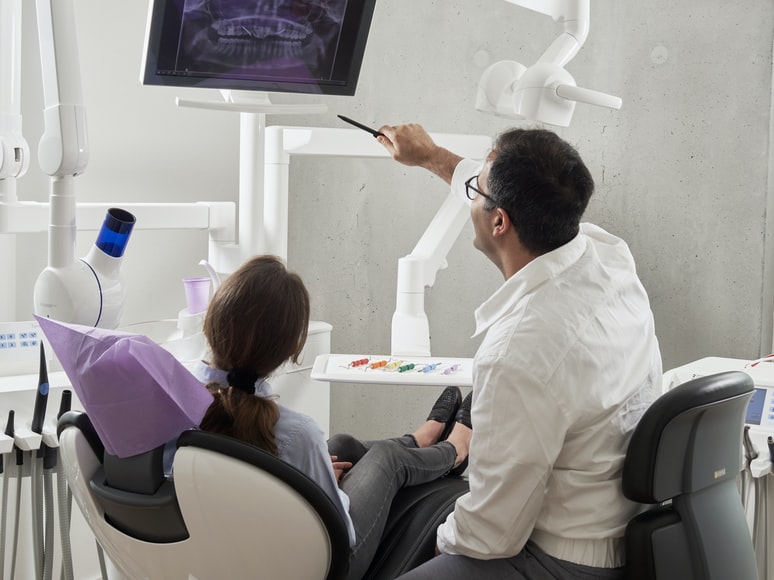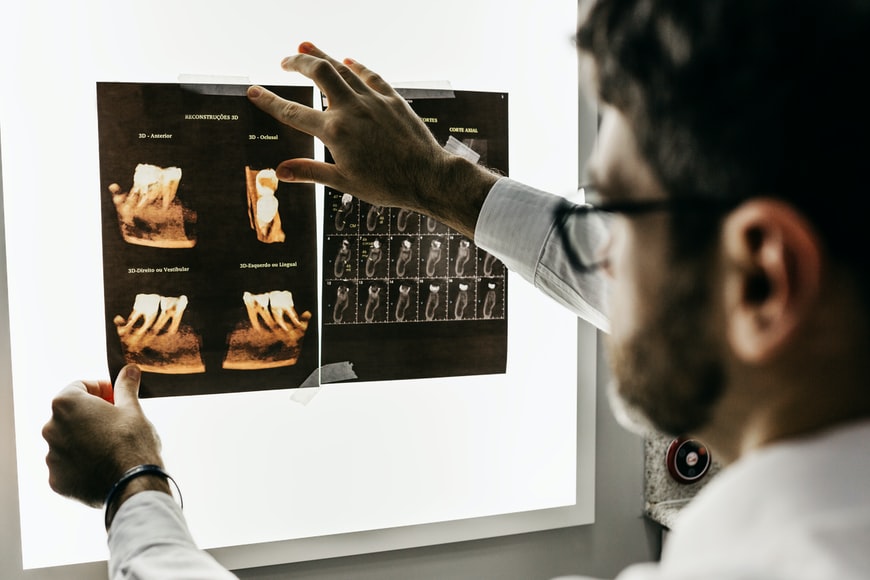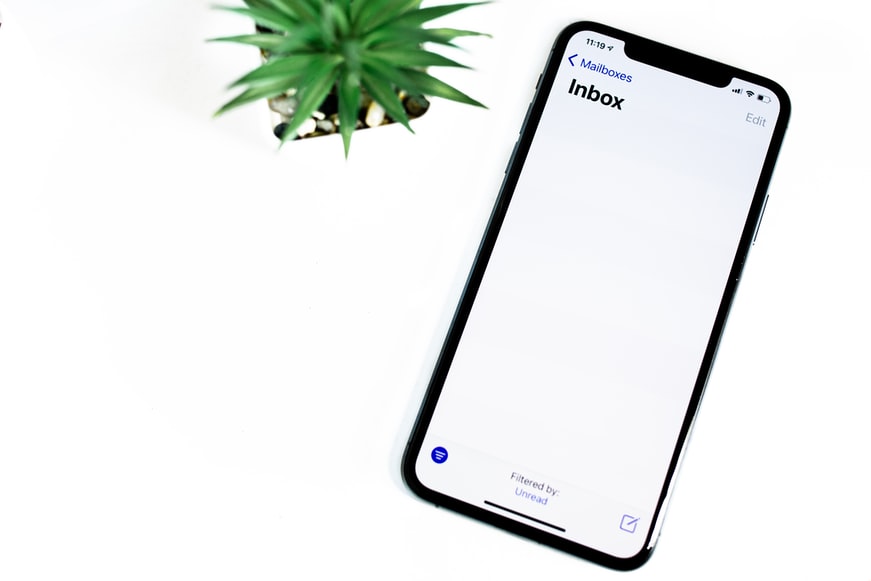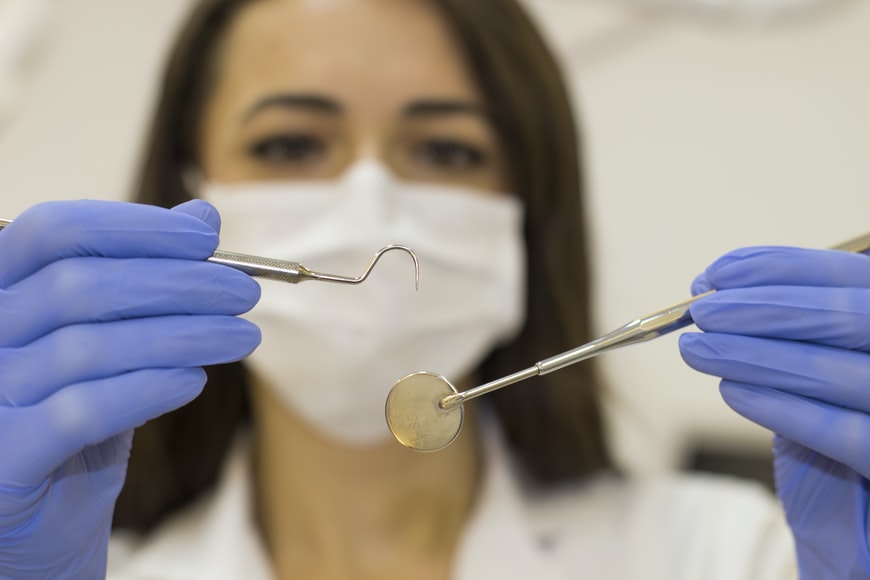More Than Teeth: How Dentists Handle Your Dental Information
The importance of a patient’s dental record can’t be understated. Clear, detailed, and organized dental records are required to provide patients with the best care possible.
In addition, dental practices are required by law to create and maintain patient records. Otherwise, a dentist will be exposed to significant liabilities and risks. With that said, you might be wondering how dentists handle your dental information.
Ideally, there are certain best practices your dentist should be doing to create, maintain and destroy patients’ dental records. Read on!
Contents
1. Correcting Omissions or Mistakes

The seemingly insignificant aspects of transcription can create problems for dentists. So, they should never erase, delete, or white-out any entries as well as leave blank lines or spaces with the intention of adding more info later on. These actions are often construed as evidence of improper alteration.
Dentists are required to draw a single line through any error. Then, they should add the date and initial the entry for verification.
2. Creating Copy For Patients
Your dentist owns your dental record and can be the legal guardian of your dental information. While you can’t keep or have your original report, the HIPAA security rule states that you can have access and request copies of your dental records at any time.
The original documents should remain within the practice, with the requested copies must be sent to you through a hipaa compliant fax service within a reasonable time frame.
3. Writing Facts
Since a patient record is the first source of evidence in a case of malpractice litigation, a dentist needs to make sure that nothing in the patient record is in the wrong context as viewed.
For dentists to avoid liability, embarrassment, or the need for uncomfortable explanations, they need to keep a patient’s records as objective as possible.
All information in your dental record should be clinical. Witty remarks or comments that criticize a patient shouldn’t be in your patient record or, it can be subject to litigation.
4. Taking Note of Treatment Refusal

Your dentist should recommend the best treatment for your situation. However, it’s your choice whether or not to follow that advice. In case you don’t follow your dentist’s recommendation, they should make a detailed note of the event in your records.
They should record the details of the discussion with you about the potential risks and benefits associated with the proposed treatment. Then it should clearly explain why you refuse the treatment in your file.
Some dentists also include canceled appointments in your dental records, explaining the intended purpose of the appointment as well as your reasons for cancellation.
5. Conducting HIPAA Security Risk Evaluation And Staff Training
The Health Insurance Portability and Accountability Act or HIPAA requires healthcare providers, including dentists, to assess their electronic security risks for regular compliance.
With that said, your dentists should use the provided Security Risk Assessment Tools to create a risk review report outlining challenges, risks, and opportunities for improvement in their data security strategy.
Your dentist should also conduct regular training and review of data security best practices with their staff. After all, a minor mistake such as leaving a tablet left unattended in the clinical area can put their dental records at risk for a breach.
6. Separating Financial Information
Financial and payment information don’t belong in your dental records. It’s inappropriate to include payment records, insurance benefit details, or other monetary information in your dental records.
Thus, a good dentist will have a separate financial record from your dental health record.
Mixing financial records with dental health records may create bias in the evaluation of treatment options. Also, this should prevent disclosing inappropriate information to another dentist should you choose to switch providers.
7. Being Cautious When Using Email

Email correspondence from your dentists can be helpful, but it does pose significant risks to your dentist. Your confidentiality may be compromised since it can be misdirected to third parties or in confirming the identity of the author of the email.
Thus, your dentist should inform you about the risk of using email correspondence. After explaining the risks, they should ask for informed consent by reading and signing a consent form. Some quality dentists even work with a trusted legal advisor to craft disclaimer forms included in every email correspondence. It has instructions for parties who mistakenly receive a confidential email.
8. Protecting Data
No patient would be happy if they discover that their dentists don’t protect their privacy and the confidentiality of their dental records.
Thus, dentists always ensure the protection of their patients’ records. In terms of electronic files, most dentists employ data security practices, including encryption software and backup tools so they don’t lose important information. Also, your dentist may use a password manager and ensure digital hygiene in their patients’ records.
Your dentist should also avoid leaving confidential documents where others can see and read the content. They keep these files protected in a safe location— whether physically or digitally.
9. Retention Timelines
In most cases, HIPAA surpasses any state laws that may apply to medical health records. However, in terms of records retention, it is often the state’s law that administers.
Retention requirements vary depending on the individual state, institution, and record. In general, your dentist should retain and maintain your dental records such as consultation reports, radiographs, and drug prescriptions for at least 10 years following the date of the last entry.
10. Shredding Confidential Documents
When permitted by HIPAA and other laws, hard copies of your dental records are for disposal. To avoid leaking confidential information, it can be shredded. In general, your dentist will hire a professional shredding service to destroy confidential records.
In terms of destroying radiographs, most dentists contact a specialist to determine the proper method of disposing of X-rays.
In terms of deleting electronic files, your dentist shouldn’t simply delete the files. When deleted, it’s not entirely gone from the system since the raw data file still exists on the hard drive. Thus, most dentists often work with an IT specialist to ensure that all confidential electronic files from the computer memory are completely removed.
Your dentist should also have any services that destroy documents to sign a confidentiality agreement, indemnifying the dental practice in case of a breach of confidentiality.
Conclusion
And there you have it! The above best practices are how a reliable dentist handles and manages your dental health records to stay compliant and protect your privacy and confidentiality.
Read Also:
- Top 5 Mistakes You Should Not Make When Selecting Your Dentist
- Best Practices for Healthy Teeth
- Signs to Know That Your Teeth Have Cavities
- Toothache: Why It Is Considered A Dental Emergency
- Stained Teeth & What You Can Do About It



